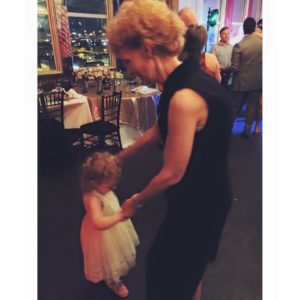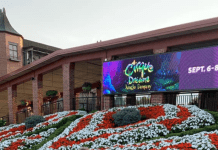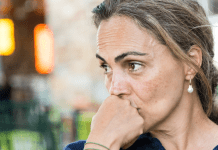Do you remember the ice bucket challenge? I do. That was about the only thing I remembered in regards to ALS, until winter 2015.
ALS, also called Lou Gehrig’s disease, is a nervous system disease that ultimately weakens the muscles and impacts, eventually depleting completely, physical function. With ALS, nerve cells break down and reduce functionality in muscles. This eventually leads to the inability for patients to speak, swallow, eat, walk and move in general. Currently, it is 100% fatal.
People’s initial reaction is generally to gravitate toward finding out what causes ALS, but as of right now, the difficult truth is that no one really knows. The best connections to the disease include explaining it as a gene mutation and recognizing that those with ALS normally have higher levels of glutamate. However, there has been a recent gene discovery, NEK1, which is considered one of the most common genes contributing to the disease.
 I’ve officially known about my mother’s ALS for roughly 10 months, and even now, it’s strange to me to realize that it has been that long. Noticeable symptoms of ALS started about a year before her diagnosis, and she’s shared with me that she noticed weakness started even months before that.
I’ve officially known about my mother’s ALS for roughly 10 months, and even now, it’s strange to me to realize that it has been that long. Noticeable symptoms of ALS started about a year before her diagnosis, and she’s shared with me that she noticed weakness started even months before that.
It’s hard as a child, and even family (siblings, grandkids, friends), to watch someone that you love fall victim to the difficulties that accompany ALS. And to add to that, it becomes a part of life to have to pick up normal responsibilities for that person – making phones calls, paying bills, washing clothes, putting their socks on or dealing with infamous insurance companies.
Because of my situation, at the mere age of 26, I can give you the solid advice to know your insurance policy inside and out. Beyond that, if you’re going to deal with Disability, Social Security or Medicare, it’s important to know that ALS is one of the three circumstances that allows a person those services before the age of 65. What makes it almost laughable, is that every single person I’ve talked to who works in these fields doesn’t know that. I have to tell them. I have to insist. I have to stand my ground. It’s painful to think people dealing with this disease who don’t know that information would be completely out of luck.
ALS also means that my mother doesn’t get out of the house much at all anymore. I can’t call her on the phone and vent or hear her voice ever again. It means someone who once stood taller than me and seemed larger than life is now 1/3 the size of me, physically.
It’s a desperate scramble to find any alternative outlet available that might help or slow the process, but mostly, it’s watching a slow progression of a very unforgiving disease take all of the movements and physical life out of someone’s body.
I will admit that I’m very grateful ALS rarely takes away someone’s mental capacity. With the right tools, like boogie boards and iPad apps, anyone can communicate with their hands and even their eyes when it comes that point. Regardless, I’d be lying if I didn’t tell you it’s still painful to see someone completely mentally capable reduce to a bed, communicating with a tablet. It’s hard for me, and I know that means it’s 10 times harder for my mother.
During my journey thus far with my mother and with ALS, I’ve learned three things ring true, not only for me, but for others in similar situations.
- I wished for some sort of illogical miracle, hoping one day I’d walk into a room greeted by someone saying, “It was all a bad joke!”
- I was so mad for a really long time. I know the stages of grief, which made it more frustrating I was stuck in that stage of grief and realized it. That also allowed me to be blunt. In the beginning when someone asked how I was dealing, I simply shared I was choosing not to deal with it at all. During this time, it was hard for me to be with my mom. It was like my anger was directed toward her – completely out of my control, frustrating and irrational.
- I felt that once I shared it, there was no taking it back. It’s very intimidating to share devastating news with others, especially when you haven’t fully wrapped your head around it. It seems that once you release a diagnosis to others, there’s no going back.
Right now, this is what ALS means to me, to my family, to my husband and possibly, on some subconscious level, to my two beautiful, tiny toddlers. I am grateful my children are growing up with their “Mimi,” even in the situation we’re living. They’ve gained compassion and lost the detached, reserved persona that often comes with others around the elderly or sick. They’re learning very young that those who are much older, those who cannot speak, those who are in a wheelchair, etc., are no different really than me or you, and they’re comfortably treating them in such a manner.
I like to continue thinking, despite the gloomy circumstances, positivity can be found in negative situations. To quote a new favorite show of mine, “[take] the sourest lemon that life has to offer and turn it into something resembling lemonade.”
















